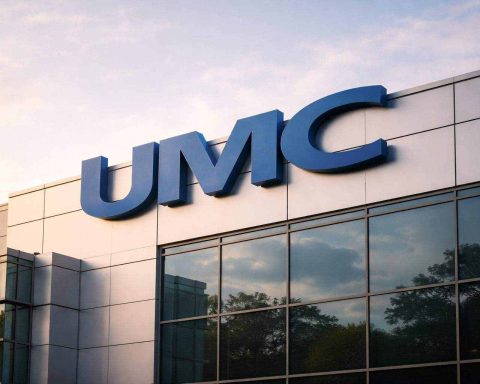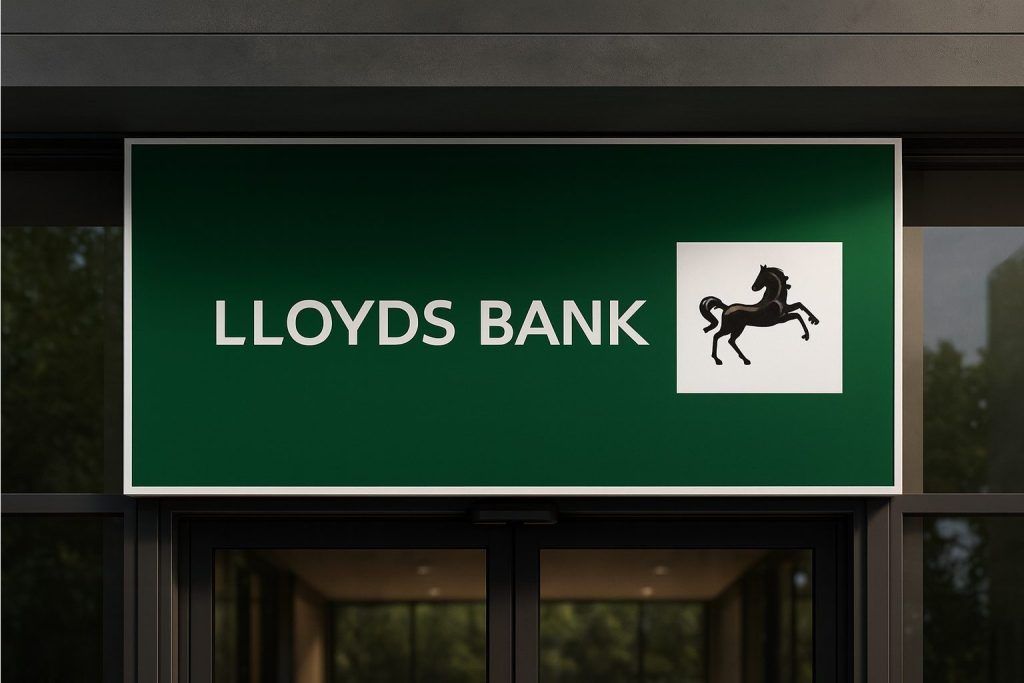London, Wednesday 26 November 2025 — Hours before Rachel Reeves stands at the despatch box for her first full Budget as chancellor, Britain’s economic and political stakes have been dramatically raised by a leak of official forecasts and warnings of a deepening “growth emergency”.
According to leaked figures from the Office for Budget Responsibility (OBR), UK GDP is now expected to grow by around 1.5% a year on average over the forecast period, slower than projected in March due to weaker underlying productivity. Public debt is forecast to edge up to about 96% of GDP by the end of the decade, even as government borrowing falls from roughly 4.5% of GDP in 2025–26 to under 2% by 2030–31.1
At the same time, the watchdog indicates that income tax thresholds will be frozen for a further three years, out to 2030–31, a move expected to pull more workers into higher tax bands and raise an estimated £8.3bn in 2029–30 alone.1
Below is a full breakdown of what’s happening today, why ministers are talking about a “growth emergency”, and what today’s Budget could mean for households, businesses and British politics.
Key takeaways at a glance
- OBR leak suggests slower growth than previously forecast and debt stuck near record levels.1
- Income tax thresholds frozen to 2030–31, creating a large stealth tax rise as wages rise.1
- Business secretary Peter Kyle says the UK remains in a “growth emergency” and calls for “more urgency” and “boldness” from government.2
- OBR set to downgrade growth forecasts to 2029, raising fears this is a make-or-break Budget for Reeves.3
- Farmers protest in Westminster leads to arrests, with Nigel Farage promising legal support for demonstrators.1
- Row over leaks as opposition parties demand an inquiry into how sensitive OBR numbers emerged before the speech.4
- Labour leadership insists today’s Budget will be about “fair and necessary choices”, cutting the cost of living, waiting lists and national debt.4
1. The OBR leak that rocked Budget Day
The Guardian’s live coverage this morning revealed that key parts of the OBR’s Economic and Fiscal Outlook appeared online before Reeves began her statement — a highly unusual and politically explosive development.4
From what has emerged:
- Growth: Real GDP is now projected to rise by about 1.5% a year on average over the forecast horizon, roughly 0.3 percentage points lower than the March forecast, largely because productivity is expected to be weaker.1
- Debt and borrowing:
- Public debt is forecast to creep up from around 95% of GDP to about 96% by 2030, signalling no decisive downward shift in the UK’s debt burden.1
- Government borrowing is projected to fall from 4.5% of GDP in 2025–26 to below 2% by 2030–31, allowing Reeves to claim progress towards fiscal rules while still facing very tight spending choices.1
- Tax burden: The leak suggests that the tax take is heading towards record highs as a share of national income, prompting Liberal Democrat leader Ed Davey to claim the figures show Britain on course for the heaviest tax burden in modern history.4
For Reeves, who came into the Treasury promising to restore economic credibility and deliver growth, starting Budget Day under the shadow of a leak from the very watchdog that underpins her plans is a serious blow.
2. Income tax “stealth rise”: thresholds frozen to 2030–31
Arguably the single most tangible policy revealed in the leak is the extension of the freeze on income tax thresholds.
- The personal allowance and higher-rate threshold are expected to remain fixed for an extra three years, until 2030–31.1
- The OBR estimates that this extended freeze will generate about £8.3bn of extra revenue in 2029–30, as wage growth quietly pulls more workers into paying tax or into higher bands — classic “fiscal drag”.1
This is why many economists and commentators describe it as a “stealth” tax rise: the headline tax rates may not change, but over time people pay more tax on a larger share of their income.
Financial analysts have already warned that, combined with possible changes to ISAs and pension tax rules, today’s package could redistribute the tax burden heavily towards middle- and higher-earning workers, property owners and wealthier savers.5
3. A ‘growth emergency’ and the worst outlook in 15 years?
Today’s leak comes on top of grim pre‑Budget warnings that the UK is stuck in what ministers themselves call a “growth emergency”.
An earlier investigation by The Independent reported that the OBR was preparing to downgrade its growth forecasts all the way to 2029, in what could be the watchdog’s most pessimistic set of projections since it was created after the financial crisis.3
Key points from that reporting:
- Reeves is said to have lobbied the OBR not to cut its estimates so sharply, worried that weaker growth would limit her room for manoeuvre and raise doubts about Labour’s economic strategy.3
- Business leaders told ministers they face “death by a thousand taxes”, warning that further tax hikes could discourage investment and hiring.3
- A new analysis for MPs suggested the Treasury is losing up to £90bn a year in tax revenue due to the long‑term economic drag from Brexit, underscoring how hard it will be to fund spending priorities without politically painful revenue-raising measures.3
In polling cited by the same report, public confidence in the new Labour administration appears fragile: both Keir Starmer and Rachel Reeves recorded strongly negative approval ratings, and a large majority of voters said they would prefer spending cuts to further tax rises, even as public services strain under pressure.3
All of this means that today’s Budget is widely seen as make‑or‑break for Reeves’ reputation as a safe pair of hands.
4. Peter Kyle: “We inherited a growth emergency”
If the OBR is the technocratic voice of pessimism, business secretary Peter Kyle has become its political echo.
In an interview with Sky News ahead of the Budget, Kyle said the government “inherited a growth emergency” and accepted that ministers must show “more urgency” and “boldness” to get the economy moving.2
Speaking to business leaders at the CBI conference and in broadcast interviews, Kyle:
- Insisted economic growth remains the government’s top priority, despite reports that the Budget will focus heavily on fairness, welfare and public services.2
- Pointed to welfare reforms and efforts to reduce long‑term sickness as ways to expand the workforce and boost productivity.2
- Highlighted planning changes — including measures that could support projects such as Heathrow expansion — and a refreshed post‑Brexit relationship with the EU as reasons for “optimism” about the medium‑term outlook.3
- Acknowledged that the departure of high‑net‑worth individuals, including Indian steel magnate Lakshmi Mittal, is “a worry”, but argued the UK is also making it easier for highly skilled people to come and work.2
Kyle’s comments neatly capture the central tension of Budget 2025: how to raise the revenue Reeves needs while still convincing businesses that Britain is a dynamic, welcoming place to invest.
5. Fairness vs growth: Labour’s framing of Budget 2025
Reeves and Starmer are acutely aware that a Budget built on tax hikes and threshold freezes risks being painted as anti‑growth and anti‑aspiration. Their response has been to frame today’s decisions as “fair and necessary choices” focused on the cost of living, NHS waiting lists and debt reduction.
In a video released this morning, Reeves promised a Budget that would:
cut waiting lists, cut debt and cut the cost of living
while Starmer posted his own message insisting that the Budget is about “fair choices” centred on voters’ priorities.4
Pre‑Budget briefings suggest that, to hold together her coalition of Labour MPs and voters, Reeves is likely to:
- Lift the national minimum wage, building on a video address already highlighting planned increases.6
- Consider property‑based tax reforms, including tweaks that look very similar to a “mansion tax” on higher‑value homes, as well as tightening reliefs used by wealthier households.7
- Explore a levy on banks and other financial institutions, and remove or reduce some tax privileges that benefit the very rich, following on from Labour’s earlier non‑dom reforms.7
However, experts warn that many of these options risk further dampening investment, especially if they are perceived as ad‑hoc or overly targeted at business. The Institute for Fiscal Studies has cautioned that poorly designed, piecemeal tax rises can be “particularly bad for growth” even as they raise money.3
6. Wages, protests and front-page fury
While economists pore over spreadsheets, today’s Budget is already playing out on Britain’s streets and front pages.
Minimum wage row
The Resolution Foundation has argued that sharp increases in the minimum wage for younger workers could harm employment prospects for those at the bottom of the labour market.4
TUC general secretary Paul Nowak has dismissed those warnings as “scaremongering”, pointing out that:
- The Low Pay Commission is specifically tasked with balancing pay rises against the risk to jobs.
- Past predictions that minimum wage hikes would cost large numbers of jobs have not, in his view, materialised.
- Many major employers already pay young workers closer to adult rates because their living costs are essentially the same as older colleagues.4
The clash illustrates how Reeves’ pledge to be “on the side of working people” must be reconciled with the OBR’s insistence that productivity, not just pay, is the key to sustainable growth.
Farmers in Westminster – and Farage steps in
In central London, farmers have staged a Budget‑day protest in Whitehall, driving tractors into Westminster despite Metropolitan Police conditions limiting the use of agricultural vehicles. Several arrests were made after some protesters refused to comply.1
Reform UK leader Nigel Farage has seized on the moment, promising that his party will fund the legal defence of “every farmer protesting peacefully” today, and condemning the police response as heavy‑handed.1
The protest taps into wider rural anger over costs, regulation and the direction of government policy — and ensures that Reeves’ tax freezes and spending plans will not be the only story on Budget Day.
Newspaper verdicts
This morning’s newspaper front pages, collated in the Guardian live blog, offer a snapshot of the political climate:
- The Daily Mirror is one of the few titles broadly sympathetic to the Treasury’s approach.
- Papers like The Times, Financial Times and The i adopt a more measured tone, focusing on the sheer scale of the tax‑and‑spend decisions ahead.
- Tabloids such as The Sun and Metro take a harsher line, highlighting fears of tax grabs and broken promises.4
For a chancellor who knows that political narratives harden quickly after a big set‑piece speech, these early headlines will matter.
7. What today’s Budget means for you
Although the full detail will only be clear once Reeves has finished speaking and the Budget “Red Book” is released, today’s leak and pre‑briefings already point to several likely impacts for households and businesses:
- Most workers
- Expect to be dragged further into tax, or into higher bands, over the rest of the decade due to the threshold freeze.
- If you benefit from a higher minimum wage, that may offset some of the pain — but not necessarily all, once tax and inflation are factored in.
- Homeowners and landlords
- Could face higher effective taxes on property, particularly at the upper end of the market, as the Treasury hunts for relatively immobile sources of revenue.7
- Savers and investors
- Should watch for changes to ISAs and capital taxes, with several outlets reporting potential simplification alongside tighter limits or reduced reliefs for wealthier savers.5
- Businesses
- May see targeted incentives around green investment, infrastructure and innovation, but also face the cumulative impact of new and existing taxes — the “thousand cuts” many business leaders are worried about.3
8. The politics of a high‑stakes Budget
Today’s Autumn Budget 2025 is more than a fiscal event; it is a stress test of Labour’s core promise: that it can both restore stability and kick‑start growth after years of stagnation.
Reeves will argue that fairness and growth are not in conflict, and that a combination of tax reform, investment in public services and structural changes to planning and labour markets can put the UK on a more sustainable path. Her critics — from business groups and opposition parties to uneasy Labour MPs — will say she is betting too heavily on higher taxes in an economy that is already barely growing.
With leaked OBR numbers setting the tone, farmers on the streets, and front pages sharpening their judgement, Budget 2025 has already become one of the most politically charged Treasury statements in recent memory. What Reeves announces this afternoon will define not only the economic outlook for the rest of the decade, but also whether voters still believe Labour can deliver the prosperity it promised.






